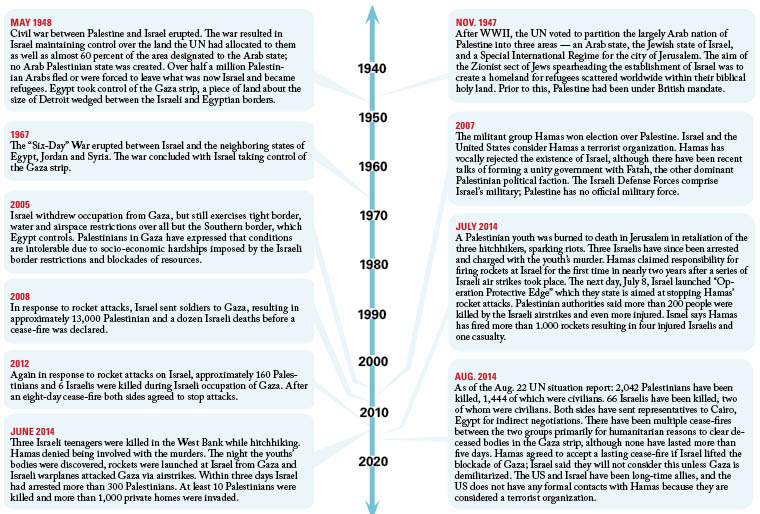The Israeli-Palestinian conflict is one of the most contentious and intricate disputes in modern history. To delineate the origins and development of this conflict, particularly from a Christian perspective, one must traverse a myriad of historical, religious, and geopolitical landscapes. Rather than a mere political rivalry, the tensions encapsulate profound historical grievances and spiritual significance for both Israelis and Palestinians.
In the late 19th and early 20th centuries, nationalist movements began to emerge in both Jewish and Arab communities. Jewish nationalism, or Zionism, was significantly spurred by the movement for Jewish self-determination in response to widespread anti-Semitism throughout Europe. Concurrently, Arab nationalism began to coalesce, particularly among Arab communities under Ottoman rule. This era, culminating in the early 20th century, represented the initial stirrings of the present conflict as both groups sought to assert their rights over a land imbued with religious and historical significance.
During World War I, the dissolution of the Ottoman Empire paved the way for heightened tensions. The 1916 McMahon-Hussein Correspondence, wherein the British promised Arab independence, juxtaposed with the Balfour Declaration in 1917, which voiced support for a Jewish homeland in Palestine, created a profound sense of betrayal among Arab leaders. This conflicting commitment to two distinct national movements initiated longstanding animosities.
After the war, the League of Nations granted Britain a mandate over Palestine, and during this time, tensions escalated as Jewish immigration increased. The influx of Jewish settlers brought promises of prosperity and growth. Still, it also instigated fierce opposition from the Arab populace, who perceived this influx as a direct threat to their cultural identity and land. The resultant riots in 1920 and again in 1929 exemplified the burgeoning discord. Christians, inhabiting spaces between these communities, often found themselves grappling with complex allegiances, their faith teaching compassion while caught in a swirling contest for land and identity.
The conflict took a more definitive turn post-World War II, as the horrors of the Holocaust galvanized international support for the establishment of a Jewish state. In 1947, the United Nations proposed partitioning Palestine into separate Jewish and Arab states, a plan that was accepted by Jewish leaders but vehemently rejected by Arab leaders. The aftermath saw the 1948 Arab-Israeli War, leading to the establishment of the State of Israel, which displaced an estimated 700,000 Palestinians—a tragedy referred to by Palestinians as the Nakba, or “catastrophe.”
This early period was not just a question of territorial sovereignty; it also drew deeply from theological wells. Many Christians in the West viewed the establishment of Israel through a prophetic lens, interpreting events as manifestations of biblical prophecy. Simultaneously, the Palestinian narrative, rich in religious overtones, recasts their struggle as a fight for home amidst divinely ordained lands. This duality adds layers to the historical narrative, inviting a Christian understanding that is as much about spiritual fulfillment as it is about justice and human rights.
As the decades progressed, tensions surged amidst a backdrop of wars, uprisings, and peace processes. The Six-Day War in 1967 resulted in Israel’s occupation of the West Bank, Gaza Strip, and East Jerusalem, creating an enduring military presence that has persisted for generations. This occupation fueled further resentment and resistance among Palestinians, leading to the first Intifada, a grassroots uprising against Israeli control during the late 1980s.
For Christians observing these developments, there exists a profound concern about the implications for justice and peace in the Holy Land. Many Christian denominations advocate for both the rights of the Palestinian people and the security of the Israeli state, embodying the difficult balancing act of compassion and political reality. The theological implications of the conflict cannot be overstated; the deeply held beliefs of both communities challenge the call to peacemaking found within Christianity itself.
The advent of the Oslo Accords in the 1990s provided a beacon of hope, aiming to establish a framework for peace and mutual recognition. However, setbacks, constant violence, and unfulfilled promises wrought by both sides have impeded progress. The Second Intifada, marked by increased violence and heightened fears, reinforced the cycle of mistrust, illustrating that resolutions are often more elusive than they appear.
In recent years, the situation has been further complicated by geopolitical shifts, including the ramifications of the Arab Spring and the engagement of global powers. The U.S. recognition of Jerusalem as Israel’s capital in 2017 further polarized positions. Such decisions evoke a kaleidoscope of reactions and reflections among Christian communities, who often ask how their faith informs actions in a land that bears the scars of ancient prophets as well as contemporary prophets of peace.
As we reflect on the chronology of the Israeli-Palestinian conflict, it becomes evident that the narrative is not solely one of territorial disputes but also one of identity, faith, and relentless pursuit of reconciliation. For Christians, engaging with this conflict requires a nuanced understanding of its complexity and a commitment to fostering dialogue that emphasizes hope and healing rather than division and despair. Throughout history, the struggles of these two peoples have called for a prophetic voice that beckons to the divine imperative of justice rooted in love and compassion.
Ultimately, the quest for peace in the Holy Land is far from trivial; it does not exist in isolation but rather within the rich tapestry of faith, devotion, and human experience. Recognizing the deeper spiritual and social fabrics at play may provide a pathway toward understanding and ultimately reconciliation in a conflict that has captured the fascination and morality of the world.



